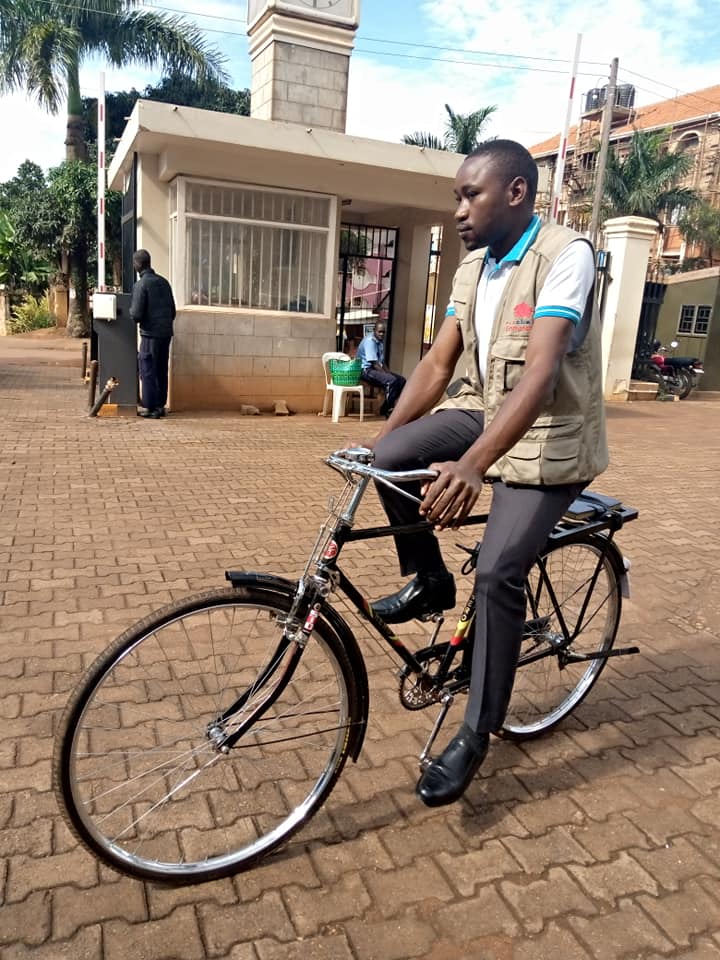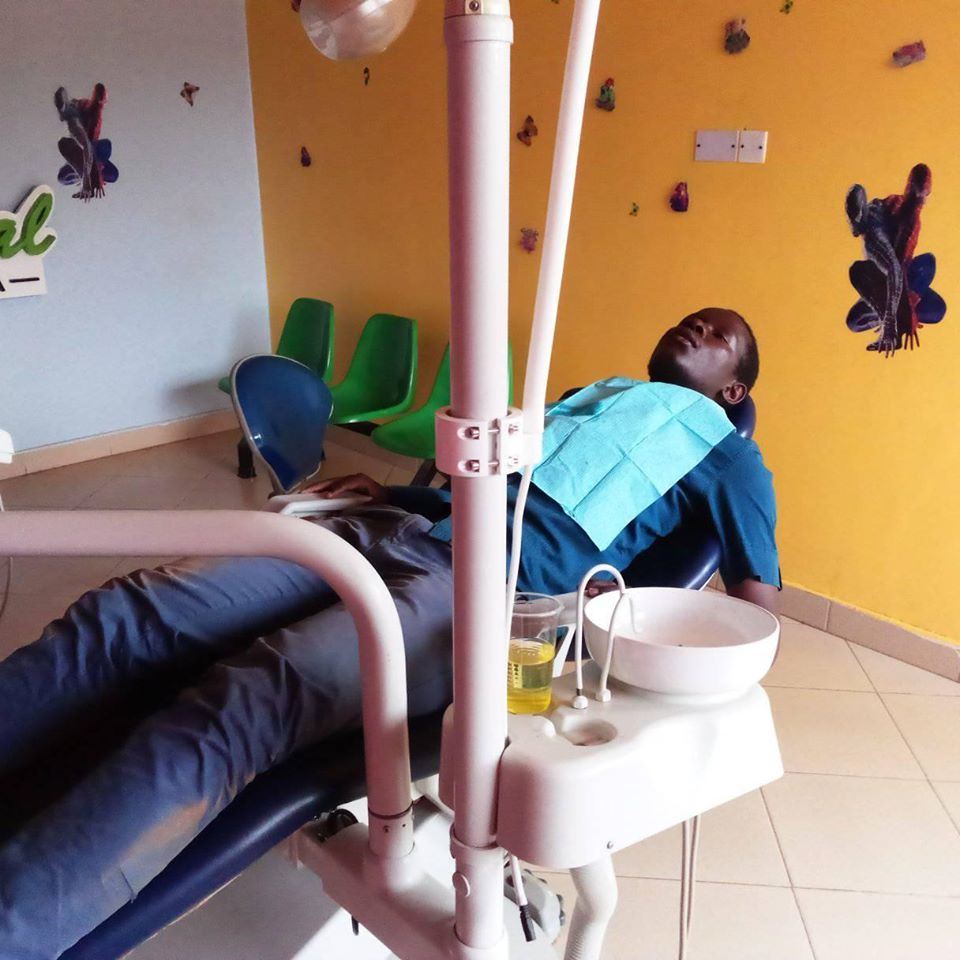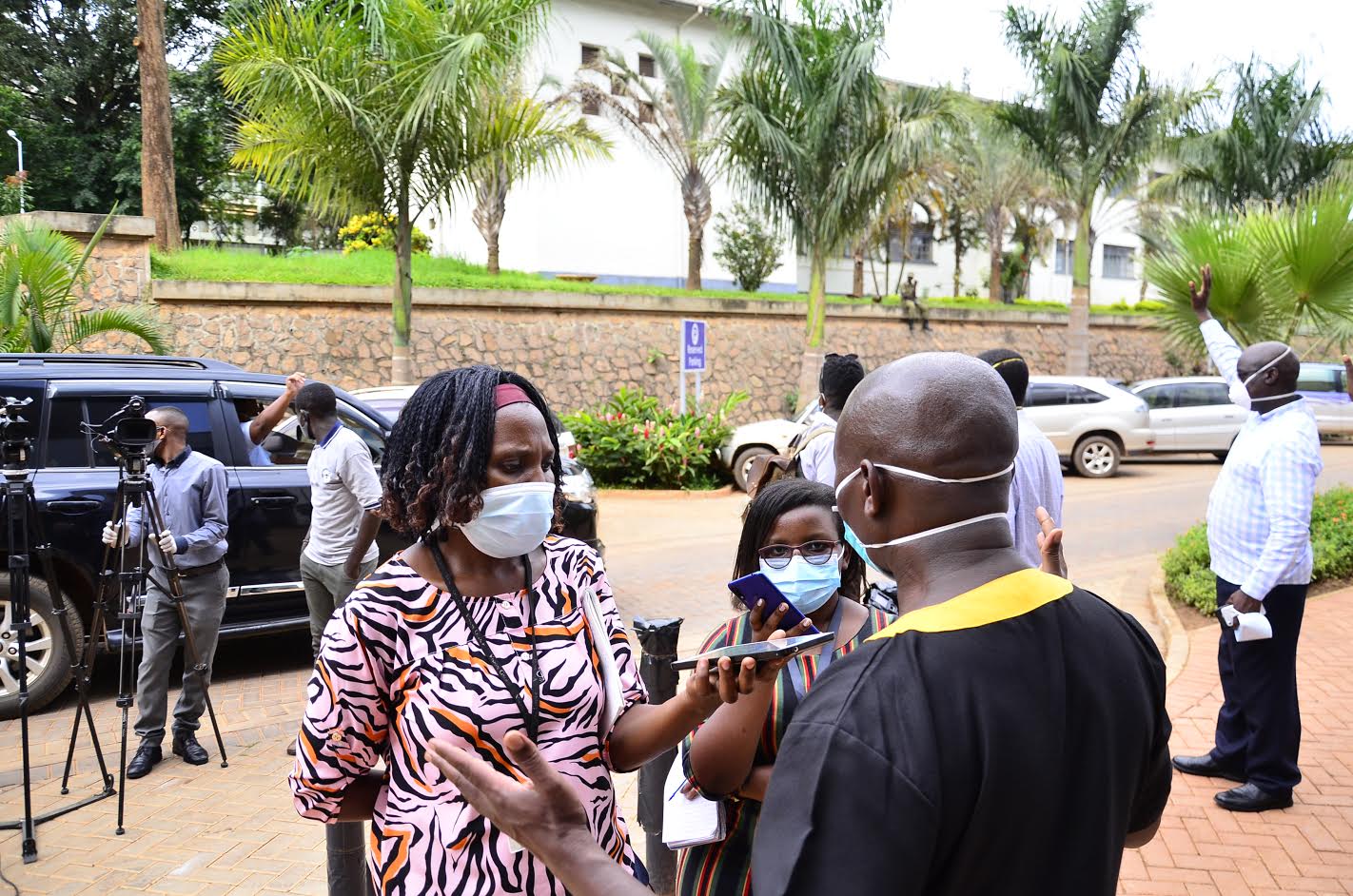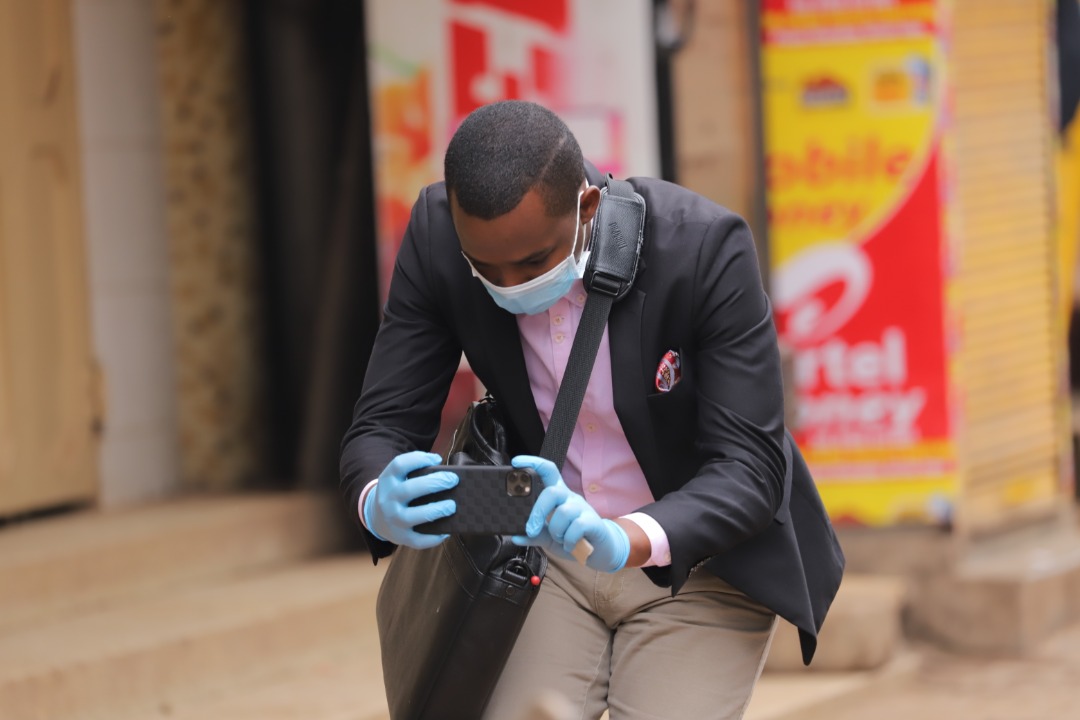Covid-19: How Ugandan journalists beat the odds to keep the world informed amid the pandemic
Several governments throughout the world announced drastic measures to help combat the spread of the deadly Coronavirus pandemic and Uganda was no exception.
On March 30, President Museveni announced the immediate shut down of all non-essential services and the prohibition of all public and private transportation, including movement to hospitals, for 14-days in the country.
Keep Reading
Consequently, the lockdown was extended for three more weeks.
Well as the media was one of the providers of essential services allowed to continue operating, the sad reality is that not everyone was provided with a movement sticker whereas many practitioners don’t own cars and were crippled.
According to Francis Otucu, a reporter for The Second Opinion, an online publication, because he owns no car and public transport means also banned, his work that involves moving to office and later the field was now crippled.
“I had to move out of my nest in these unprecedented times. I had to walk (for about 8km) from Kyambogo to the city centre,”Otucu says.
He says that at first he found difficulty spending an hour walking as opposed to the 10 minutes while using a vehicle.
 CBS FM's Dodovico Mukasa borrowed a bicycle to use in in the field.
CBS FM's Dodovico Mukasa borrowed a bicycle to use in in the field.
In the past, Otucu used to leave office by 10pm but because of the 7pm curfew imposed by government, this had to change and he had to return home early in order to beat the 7pm o’clock.
Fatigue
Otucu says in the early days of the lockdown, he felt so fatigued and almost missed days without going to work.
I guess my body was not used to that long distance of walking. I remember having a bit of swollen feet which I had to use warm water to work it out. I thought of getting time to rest but when I dropped the idea because of the kind of work I do that requires me to be on duty every day. However, with time, all went on well, ” he says.
For Daily Monitor’s Jacob Seaman had to do the usual- leave his home near the city to return to his home town in Jinja after things turned bad.
“As an editor in Kampala, this damn virus and its cousin lockdown drove me crazy. One day I walked from Bweyogerere to Namuwongo. Company vehicles were overwhelmed. Picking one from home was a hustle. There were options to work from home but because my laptop was in Jinja, I looked for a way to flee Kampala. I have been working from Jinja since,” Seaman says.
The distance between Kampala and Jinja is approximately 80km.
However, according Seaman, things have not been as smooth as he expected when he returned to Jinja.
“When power goes off, it can mean trouble. The other day it went off and then battery went flat just before I sent pages. And then they were asking for the work. You should have seen me running around to look for people with solar,” he said.
Despair
For Trumpet News Managing Editor, Nicholas Mwesigwa, the lockdown is a moment of despair for his team.
“Soon after announcing a lockdown, my landlord closed down the building our team was unable to access our office. This compelled us to work from home,” Mwesigwa says.
He however says that the idea of working from home had some loopholes that made their work difficult.
“Working separately, you don’t pool ideas together that can push the newsroom and therefore publish quality stories. Somehow, the stories are missing something that would have been achieved if we were together to brainstorm on what to do. Nevertheless, we have been trying to execute our duties while at home.”
“As they say desperate times call for desperate measures, we agreed to coordinate meetings online since most of our work is digital.”
 Radio One and Radio Two's Vincent Kisiriko was admitted after being involved in an accident
Radio One and Radio Two's Vincent Kisiriko was admitted after being involved in an accident
Mwesigwa says that his company’s marketing department also found problems reaching out to their clients and in the process, they missed out on some advertisers.
“Since our business thrives on advertising, no client has been willing to offer business. Some say they have no budgets, while others have halted the business saying they need to review. Chances are high they will suspend working with us or cut the budgets,” he says.
Desperate measures
Like the saying goes, desperate moments call for desperate measures, several journalists devised means that would enable them continue with their work despite the effects of the deadly virus.
One of those is Dodovico Mukasa, a reporter with Buganda owned, CBS radio who had to get a bicycle.
“I borrowed a bicycle from a friend so that I could continue with my work uninterrupted despite the ban on private and public transport means. It was not easy in the first days because of the fatigue it came with riding for long hours and distances. I however got used to it,” Mukasa says.
Sports journalists most affected
The sports journalists were the most affected by the deadly virus and the resultant lockdown.
Since March 18 when the president banned all sports activities and any events that bring together big crowds as a way of combating the spread of coronavirus, sports journalists were thrown out of the business.
Most sports news is got out of sporting events and the ban therefore meant there were no stories.
According to Kawowo Sports portal’s David Isabirye, he had to find a way out of the problem.
“I work from home and doing specific tasks as news features and special reports. For many interviews, I have been able to make calls and used e-mails at many times,”Isabirye says.
 Journalists interview a source
Journalists interview a source
He says by doing special reports and features; he has been able to stay afloat during the pandemic.
Chimpreports’ Brazilian Kigozi, the ban on sports activities brought about a scarcity in the stories he writes per day but had to make a way out.
“I had to do exclusive stories from interviewing sources. I also resorted to doing research to see the trending events on the local and international scene to see if I can cobble sports stories out of them,” Kigozi says.
He adds that he had to make use of social media platforms like Whats App and Facebook to communicate with sources as well as making direct phone calls to help him connect with sources for stories.
Brian Kawalya of the Sports Nation says he had to find all means to remain afloat despite a period of no sports action.
“This meant that I had to concentrate on interviews and features related stories, engage coaches, Players and other sports stakeholders via phone calls and messages,”Kawalya says.
Daily Monitor photojournalist, John Batanudde says despite being used to working from home, the Covid-19 pandemic came as a tall order that he has to rely on photos in his archives that are relevant to stay afloat.
“I always get in touch with my bosses (editors) and fellow reporters to know the stories they working on so I can send in photos relating to them. I have to rely on my photo bank to pick a photo according to the story or editor’s needs,” the talented photojournalist says.
Challenges
According to Uganda Radio Network’s Brian Luwaga, despite having his own means of transport, it is still a challenge reaching out to all sources for his news stories that are away from the Covid-19 pandemic.
“Most of sources are currently away from office and the major focus is on Covid-19 stories yet I would wish to cover other issues but sources are not readily available,”Luwaga, a reporter in Luwero says.
NBS Television’s Zahra Namuli says most of her colleagues are not aware of the risk, coronavirus is and don’t take it upon themselves to have protection gear.
“Many of my colleagues think we (journalists) are immune to Covid-19 and at news conferences journalists, don’t observe the Stand Operating Procedures including social distancing,”Namuli says.
“While a few media companies provide masks, I am shocked to find colleagues not wearing and this exposes many of us to the virus.”
 UJA Secretary for Information, Ronald Kabuye(R) recieves food donations from Abubaker Lubowa.
UJA Secretary for Information, Ronald Kabuye(R) recieves food donations from Abubaker Lubowa.
Sports Nation’s Brian Kawalya describes the situation as stressing since on many occasions, journalists are required to have an interface with their sources but the current pandemic has made it difficult for them to do so.
“I am not used to arm chair journalism as I want to report live from the ground. That right has been stripped of me by the pandemic,” he says.
“I was forced to get another pair of shoes and in this case sneakers which make it easy for me to walk long distances as opposed to office shoes. I used to leave office as late as 10pm so as to finish my daily task but I was relegated to leaving early so as to beat the curfew,” The Second Opinion’s Francis Otucu says.
According to the Radio One and Radio Two reporter, when the lockdown was announced, a bicycle came in handy but it also came with its own challenges that saw him come face to face with death.
“One day, as I reported to work on my bicycle, I was knocked by a speeding boda boda. I spent days in hospital,”Kisiriko says of the April,12 accident.
Though he has resumed work, Kisiriko says he lost some teeth during the incident that almost ended his life a few metres from his work place in the middle of the city centre.
“I had to undergo a dental surgery.”
Daily Monitor photojournalist, Abubaker Lubowa says that in the beginning of the lockdown, there were insecurity challenges that made it impossible for journalists to carry out their work.
“Because a few people were in the city, it gave opportunity to goons to target journalists who were covering the situation. We lived in fear that they would grab our gadgets including cameras but the situation was later saved by police,”Lubowa says.
He adds that in the initial stages, security personnel manning the various checkpoints were a bit disorganized while checking motorists.
“One would reach a checkpoint and spend a lot of time being checked despite having a genuine sticker. This later changed,” he says.
Following the ban on public and private transport means, several media houses were issued with movement stickers that could transport their essential staff but according to journalists, this also brought about a challenge.
“One could spend several hours at office after finishing their work as you had to wait for the vehicle to drop colleagues. You also had to wait for colleagues plying the same route as you to gather so you could be dropped by the company vehicle,” Lubowa says.
 NBS TV's Canary Mugume captures a news item in the field
NBS TV's Canary Mugume captures a news item in the field
In one incident, a journalist(name withheld) collapsed due to hunger and colleagues had to come to his help.
"We had to rush to his help but fortunately God was on our side and he stabilised. We had to mobilise for food from sympathisers because we didn't want a similar thing to happen to our colleagues,"Lubowa says.
During the pandemic, two journalists died.
Bukedde Television's Aloysius Lutaaya from Mpigi was knocked dead by a truck along Masaka road while riding a motorcycle to go to the field and died a few days later in hospital whereas Samuel Bugembe of Ono Bwino Newspaper died of a heart attack.
On the fateful day, Bugembe failed to get medication due to absence of means of transport to get him to the nearby health facility.
Blessing in disguise
According to a number of journalists, despite their work being largely crippled by the Coronavirus pandemic, they have learnt some great lessons that will always be useful to them.
“This period has taught me that always planning ahead of time is key. I have also learnt that building so many contacts and being able to position yourself at all times are crucial in our work,” says Kawowo Sports’ David Isabirye.
The pandemic has taught Sports Nations’ Brian Kawalya not to always rely on one source of income but to also save some money to help you in times of need.
For Francis Otucu, lack of transport will no longer be a scapegoat for not reporting at office for work.
“I have learnt that one doesn’t need transport to go to work. Not even money,” he says.
For John Batanudde, the period has taught him to always be pragmatic.
“We should always adjust to get around conditions that come our way,” he says.













